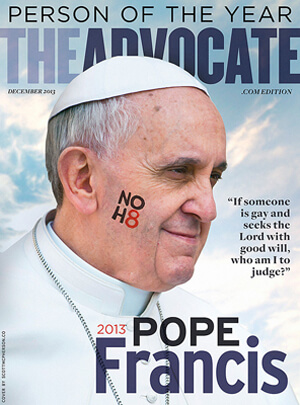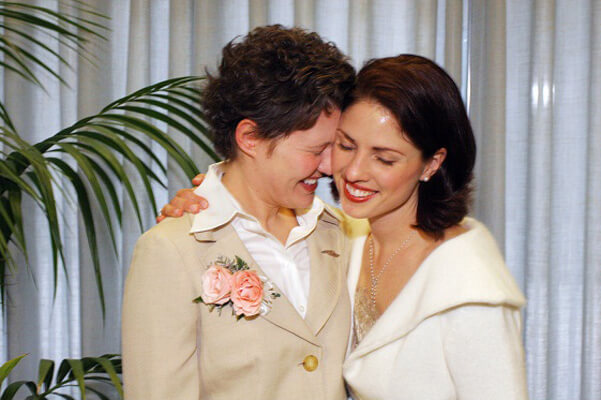Shortly after the Supreme Court struck down the Defense of Marriage Act’s (DOMA) ban on federal recognition of same-sex marriages on June 26 in Edie Windsor’s constitutional challenge to the 1996 law, Department of Homeland Security Secretary Janet Napolitano announced that the immigration service under her department would recognize same-sex marriages that were valid where they were performed, using the “place of celebration rule.”
Her announcement, which varied from the standard practice in immigration law of considering whether a marriage was recognized where the couple was residing — the “place of domicile rule” — was not binding outside her department. One administrative body whose opinion on this question is crucial is the Board of Immigration Appeals (BIA), which is in the Justice Department’s Executive Office for Immigration Review. On July 17, the BIA indicated it too has opted for the “place of celebration rule,” in a decision on a US citizen’s pending petition seeking lawful resident status for his same-sex spouse.
Justice Department panel says, like Homeland Security, it will look to where a marriage took place
Serge Polajenko, an American citizen, filed a Petition for Alien Relative, called an I-130, in March 2010, on behalf of his immigrant husband, Oleg Zeleniak, after the men married in Vermont. The petition was denied three months later on the ground that DOMA barred immigration authorities from recognizing same-sex marriages.
Polajenko appealed to the BIA, which issued a decision in April 2012 sending the case back to the director of the National Benefits Center in Homeland Security to address two issues — first, whether the Polajenko-Zeleniak marriage was valid under state law, and second, whether the marriage qualifies as “bona fide” as required by the Immigration and Nationality Act.
By that time, the Justice Department was on record as finding that DOMA’s Section 3 was unconstitutional, and it had stopped defending the statute in litigation, but was committed to continuing to enforce it pending an adverse ruling from the Supreme Court or congression-al action. Sending the case back to immigration officials in Homeland Security for these further determinations was, in effect, a holding action.
The questions posed by BIA are two distinctly separate issues, the second one focused on the requirement that a marriage be “bona fide,” one between parties intending to live as spouses, not a marriage of convenience entered into for the purpose of getting a green card, which allows an immigrant to live and work in the US. In response to the BIA, the National Benefits Center issued a new decision in June 2012, finding that the couple was validly married under Vermont law, but refusing to consider whether the marriage was bona fide for immigration purposes. Zeleniak was again denied a visa.
Polajenko appealed once more. This time, as the DOMA litigation unfolding in several federal courts made clear the issue was headed to the Supreme Court, the BIA sat on the appeal, as it did on many pending cases, waiting for a definitive ruling.
The BIA’s new decision on Polajenko’s petition holds that the Windsor decision “removed Section 3 of the DOMA as an impediment to the recognition of lawful same-sex marriages and spouses if the marriage is valid under the laws of the State where it was celebrated.”
The BIA decision sustained Polajenko’s appeal, noting that the National Benefits Center had already determined that the marriage is valid under Vermont law, “where the marriage was celebrated.” All that remains for that agency to do is establish that the couple’s marriage was bona fide, and not one of convenience.
The ruling now becomes the precedent, and presumably a stream of rulings on backed-up appeals will follow. The BIA did not address the issue directly, but presumably the place of celebration rule also extends to marriages between US citizens and foreign nationals that take place outside the US in countries that allow same-sex marriages.
Homeland Security has been issuing green cards over the past few weeks in response to I-130 petitions in accord with Napolitano’s direction, and this BIA ruling lines up the Justice Department with Homeland Security on the important issue of “place of celebration,” which means that married same-sex couples will be recognized for immigration purposes, regardless of where they are living, so long as their marriages are found to be between two men or two women who intend to share their lives as spouses.




































